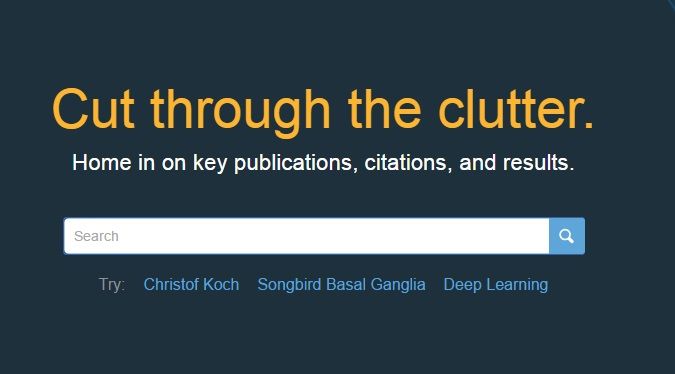The Chan-Zuckerberg Initiative, the $45 billion philanthropic organisation founded by Mark Zuckerberg and his wife Priscilla Chan, has made its first acquisition – of a search engine.
The Initiative announced on Monday that it would be acquiring Meta, a scientific search engine that uses artificial intelligence to make connections between research papers.
The search start-up, which was founded in 2010, previously charged some users for subscriptions or custom solutions, but the Chan-Zuckerberg Initiative intends to make it free to all after spending a few months enhancing the product.
The Meta search engine is designed to make it easier for researchers to search through, read and link together more than 26 million scientific papers. It also provides free, full-text access to some 18,000 journals and sources of literature.
Meta’s artificial intelligence capabilities allow it to draw connections between papers, recognising where authors and citations overlap in order to surface the most important and relevant research – rather than just what contains the right keywords. It provides an efficient and intuitive way to sort through reams of online studies and locate the most useful papers, in a way that more conventional search engines like Google Scholar can’t replicate.
If all of this sounds familiar, that might be because you’ve heard it before. Semantic Scholar is also a free, AI-powered search engine aimed at helping scientists to sift through mountains of research, using data mining, natural language processing and computer vision to analyse a study’s worth and present its key elements.
Semantic Scholar is also backed by a non-profit organisation: the Allen Institute for Artificial Intelligence, or AI2 for short. The search engine was developed by Paul Allen, co-founder of Microsoft, in conjunction with AI2 and in collaboration with Allen’s other research foundation, the Allen Institute for Brain Science.
Semantic Scholar was only launched last November, while Meta has been around since 2010. Until now, the fact that Semantic Scholar was free to use might have given it an edge, but the intervention of the Chan-Zuckerberg Initiative could change all that.
So which search engine will emerge victorious? Both have the backing of heavyweights in the technology industry – Facebook’s Mark Zuckerberg, and Microsoft’s Paul Allen. Both use artificial intelligence to open up access to scientific research in a whole new way, and both are soon to be free to all.
Semantic Scholar’s field is also quite narrow still, currently only covering 10 million published papers in the fields of neuroscience, biomedicine and computer science. However, it has a huge amount of potential and has grown quickly in the two months since its launch, with 2.5 million people using the service to perform millions of searches.
Maybe the question should be: are the two search engines even competitors? Oren Etzioni, the CEO of AI2, has already refuted the idea that Semantic Scholar would attempt to compete with Google Scholar, saying that their goal is just to “raise the bar” and provide scientists with more effective options to carry out their research. They may take the same view towards Meta, opting to work with the other company for the ultimate benefit of the scientific community.
For the Chan-Zuckerberg Initiative, Meta is just one step towards their larger goal of helping to “cure, prevent or manage all diseases by the end of the century”. Sam Molyneux, the co-founder and CEO of Meta, wrote in his own announcement on Facebook that,
“Helping scientists will produce a virtuous cycle, as they develop new tools that in turn unlock additional opportunities for faster advancement. The Chan Zuckerberg Initiative’s recognition of this “meta” effect is why Meta can be a key piece of the puzzle to enable the future of human health that we believe to be possible within this century.”
Regardless of whether Meta and Semantic Scholar will be competitors or collaborators, one thing seems certain: artificial intelligence has unlocked a whole new set of possibilities for the way that we engage with scientific research, and there’s no doubt that we will benefit from it.
Whatever happens next, it’s going to be exciting.
source https://searchenginewatch.com/2017/01/25/chan-zuckerberg-initiative-acquires-ai-powered-search-engine-meta/

No comments:
Post a Comment